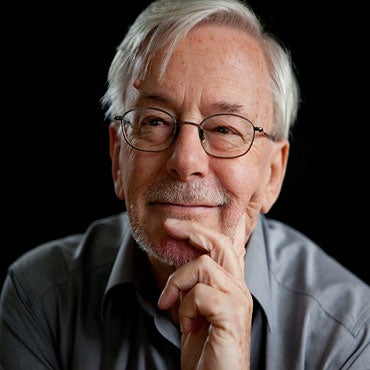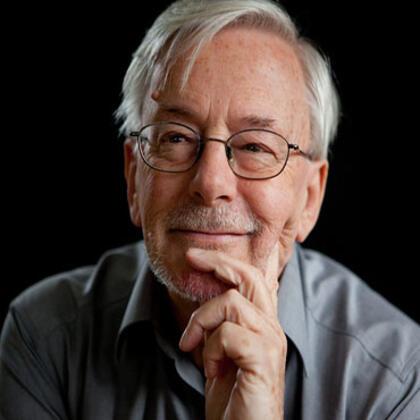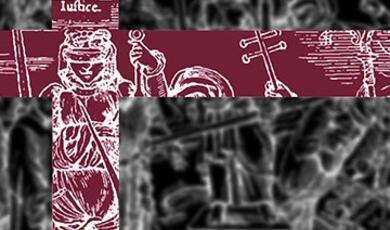Religion and Experience: A Philosophical Exploration - Personal Knowledge
Share
- Details
- Text
- Audio
- Downloads
- Extra Reading
Scientific knowledge aims at a dispassionate value-free assessment of publicly accessible, repeatable, and quantifiable data. But there is another sort of knowledge, knowledge of ourselves and other persons, which is very different, requiring engagement, personal evaluation, and involvement. This knowledge is seen in history, in self-awareness, and in relations with other persons. It is the basis of a religious form of knowing.
Please note that this replaces the lecture previously, arranged to have been delivered by Professor the Lord Plant.
Download Text
21 April 2015
Religion and Experience: A Philosophical Exploration
Personal Knowledge
Professor Keith Ward DD FBA
In the first two lectures of this short series, I have argued that all knowledge begins with experience, the reality of which is primary and undeniable. But experience needs to be interpreted, and most interpretations see experiences as mediating knowledge of a transcendent reality beyond experience. This knowledge, I suggested, is not just of an objective physical reality but also of objective values of beauty, goodness, and obligation, known in and through aesthetic and moral experience. The philosophy of Idealism postulates that such a reality is most adequately thought of, not as unconscious and valueless, but as mind-like, as containing attractive and demanding ideals which guide human creativity and provide goals for human endeavour.
This experience-transcending reality is mind-like in that it contains something analogous to thoughts and purposes, since ‘values’ are most adequately conceivable as thoughts of desirable future possibilities. It can be conceived as one, as a way of integrating various values in one systematic and inter-related whole. And it can be thought of as supremely valuable, in that it contains all possible values in itself and generates them from itself, and thus is the supremely knowing and creative source of all goodness. As one conscious and supremely valuable reality this can be thought of as ‘God’.
Though many people think of God as a person, I think that this is too restrictive an idea, since persons as we know them seem to be essentially social, finite, and embodied. But it is true that thought and intention are personal attributes, so that it seems right to think of the transcendent reality which is known in and through human experience as personal in some sense. So the question naturally arises, as to whether there is a possibility of personal relationship with such a transcendent mind.
It should be obvious that any such relationship is not between two beings of the same sort – two beings like human persons, who grow in knowledge and maturity, who disagree and argue, and who compete with or help one another. Yet it might be possible for a human mind to access an infinitely superior mind-like reality and so gain knowledge or insight that would not be available through sense-based knowledge alone. It might be possible for the values contained in that reality to be mediated in a special way through the finite minds of human beings, and so to have a causal influence on human minds that is not exclusively physical. In these ways there could be an interaction between transcendent Mind and human minds that enables the values and purposes of transcendent Mind to be realised at least to some extent in the world of human experience.
To explore this possibility we need to explore what it is to have knowledge of mental realities. One place to begin is with introspection, self-examination and self-knowledge, which involves knowledge of one’s own mind without reference to sense-experience. Some philosophers would deny that such a thing is possible. Gilbert Ryle used to say that other people often know you much better than you know yourself, and that the way to self-knowledge is by studying your behaviour, not looking into your inner life.
There is something in what he said, because self-deception about your own motives and desires is very common in human beings, and you should judge a person by what they do rather than by what they say or think they are like. I may believe myself to be a moderate drinker, and be astonished when an observer actually counts how many beers I have in a week.
Self-deception is common. But is it true that I can never know things about myself, about my inner thoughts and feelings, that no-one else can find out? Suppose my partner is a dreadful cook, and often provides me with truly horrible sticky puddings, which I hate. I nevertheless say that I love them, ask for them often, and devour them with apparent relish, in order to bolster his self-confidence. Of course the mask may slip, and the truth may be revealed. But if I am really determined, the mask will not slip, and my partner may go to his grave thinking that I have always loved his sticky puddings. Is this not a case where I can know something that, if I am careful, nobody else, even those closest to me, can ever find out?
Such cases may be more common than Ryle realised. Many human relationships would not survive if our friends knew everything that we really thought and felt. We often censor our own thoughts, and if we are good at it, no-one ever knows what we really think – but we do.
If this is right, then there is knowledge of events in our mental lives to which others may never have access.
Of course I am not denying that usually we express our thoughts and feelings in words and in behaviour. But we do have thoughts and feelings that we disguise, or that we are actually unable to express – think of those unfortunate people who have ‘locked-in’ syndrome, and think and feel without being able to express themselves in any observable way. I am not going back on my claim that all knowledge begins with experience. I am simply arguing that not all experiences are sense-experiences. We can have knowledge of experiences that do not come through the senses, that are not accessible to anyone else, and that are therefore not publicly verifiable.
One of the most readily identifiable cases of non-sensory knowledge that is completely unverifiable is the occurrence of dreams. Many of us dream during sleep, and when we wake we have vivid recollections of what we dreamed. Perhaps we dreamed that we were on a beach in the Bahamas. Memories of dreams quickly fade, but if we concentrate as soon as we wake up we can usually remember an intense visual experience of being on such a beach. This is real knowledge, since we may be in no doubt that we had such a dream. But there is absolutely no way of testing whether our knowledge is correct or not.
No one else had access to our dream. We cannot get back into the dream to see whether we have remembered it correctly. It is useless to see that we ‘could in principle’ have our dream again, because it would obviously not be the same dream a second time. We simply have to rely on our own very fallible and quickly fading memory. That shows that, whatever some philosophers say about knowledge being ‘justified true belief’, we have some knowledge that cannot be justified, but must just be accepted by the occurrence of apparent memories.
There are tests of a sort. Some people have better memories than others, some people have more inventive imaginations than others, and some people tell lies to gain attention. Also the dreams make no claim to objective reality; they are simply personal visual perceptions. So we do not need to ask if they correspond to some external state of affairs. The point is, however, that personal ‘inner’ experiences can give rise to knowledge, at least about oneself, and that may turn out to be very important.
However, major differences of interpretation arise even at this level. As I have mentioned, some philosophers deny that there is such a thing as introspection at all. Most, however, would accept that in each human consciousness there is a flow of sensations, perceptions, thoughts, feelings, and intentions that are not publicly accessible or verifiable. Some of these – some Buddhists, for example – would say that there is no more to the inner lives of humans than that. There is no continuing self which has these thoughts and perceptions, since such a self can never be observed in introspection.
Such philosophers have to face the question: what is it that makes some thoughts my thoughts, and other people’s thoughts their thoughts, and that makes it impossible for these chains of experiences to get mixed up? One suggestion is simply that thoughts exist in bundles; that there is a property of co-consciousness, which makes different thoughts thoughts of the same person, but which only obtains between specific streams of thought. Each thought is co-conscious with a set of other thoughts, but these sets of thoughts are not co-conscious with each other, and that is all there is to it.
Yet thoughts are not just arbitrarily connected. Thoughts develop and mature and are connected both causally and logically. When I run through a complex argument, I try to make it consistent and elegant and logically valid. It seems that thoughts involve agency, an active control that aims at logical validity, and that may perform well or badly. Is such agent causality yet another sort of perceivable sensation? In a sense it is, because I can feel when I am concentrating and attending, and when I am not, and this feels as if it involves effort on my part.
But who is making the effort? Is it just another perception of ‘effort’? The feeling of concentrating on something does exist, but it is not primarily important. I can make an effort without being conscious of a special sort of feeling. In fact the feeling seems to be passive – it just occurs to me – whereas concentrating is a positive activity, something that I do. This concentrating is not just another perception or thought. It is an activity, and that requires an agent, a being who acts.
Moreover, if I am going through a long complex argument, like this one, it has to be the same agent who begins the argument, who pursues it over a period of time, and who gets to the conclusion. This, in my view, is a good argument for a continuing agent, who is more than just a chain or sequence of co-conscious experiences. It is an active agent who holds experiences together both at one time and in a temporal sequence, who accumulates and remembers them, who draws conclusions and re-focusses thought on chosen aspects, and who can be held responsible for the things it does.
It is true that this process is imperfect, and it operates intermittently, but if it never occurred we could never blame our present selves from something that we did years ago – because that past act would have been done by someone who was not me. This is a good excuse, but it would also undermine all sense of moral responsibility, and any belief that what we strive hard to do has any real chance of affecting us (and not someone else) in the future.
If I contribute to a pension now, I hope it will benefit me in future, and not just some set of experiences, which happens, through a long chain of contingently connected but quite separate feelings, to be co-conscious with a certain set of experiences now.
I am arguing that co-consciousness and continuing causal agency are essentially connected, so that what makes experiences co-conscious is that they are experiences of the same continuing agent, and what makes anyone a responsible moral agent is that one set of co-conscious experiences is in a unique and not publicly accessible way shaped and modified by the continuing existence of one such agent. If this argument is acceptable, it establishes the existence of a self or ‘soul’, the owner of a unique chain of thoughts, perceptions, and feelings, and the continuing agent of a unique sequence of freely chosen actions.
Naturally, we cannot observe such a self, since it is not a perception. Its existence is established by reflection upon experience and on belief in unique access to a developing set of experiences, and the unique responsibility for the shaping of those experiences by one continuing and free agent.
We probably have to add that the experiences of human selves can often disintegrate and fall apart into almost unconnected chunks of conflicting experience, issuing in what we call ‘multiple personality’. And responsible attention and endeavour can be impeded to such an extent that humans seem to become passive pawns in the hands of obsessions and routines that they cannot control, issuing in apparently purposeless and self-destructive lives. Despite this, most people regard the integration of personality, the recovery of memory and intelligence, and the formation of a responsible and purposeful character, as desirable ideals. To that extent, we are committing ourselves to belief in the importance of developing an integrated and goal-oriented self. We should therefore seek a philosophical view that is consistent with this commitment. Idealism is just such a view, and the fact that Idealism supports this sort of view is a main argument for its rational acceptability.
It follows from all this that I cannot have access to other people’s thoughts and feelings unless those others express them in words or in behaviour. What I usually do is to interpret those of my sense-experiences whose object is other people as expressions of hidden mental thoughts, feelings, values, and purposes. Their mental events are not unknown in the sense that whatever reality it is that underlies quantum physics is unknown, something of which we have no experience at all. We assume that what goes on in other minds is more or less like what goes on in our minds, even though some people may baffle us completely.
This means that our interpretation of other people depends largely on what our own mental states are like. For instance, if we are constantly seeking for power and status in all that we do, we are likely to interpret the behaviour of others as expressing such thoughts in them. If we are good and kindly folk, we may interpret the behaviour of others in a much more kindly light.
The point is that our interpretation of others depends in large part on our own character, thoughts, and feelings. It is not neutral or value-free. What we see depends on what sort of people we are, on what thoughts and feelings inhabit our own minds. That is why those who assess the character of others disagree so much. They are ‘reading’ the behaviour and words of others by analogy with their own inner mental states. There is no objective and neutral interpretation. Again our assessments are not verifiable in an objective sense, that could be agreed by all, whatever their own beliefs and feelings. Thus disagreement in the evaluative description of others is not disappointing. It is virtually inevitable.
This is shown very clearly by the study of history. Standards of objective evidence have risen enormously in the past century or so, and historians make great efforts to base their reconstructions of history on available evidence. Nevertheless, historians disagree sharply on their interpretations, and they all have to construct narratives with evidence that is often ambiguous or fragmentary, so that they have to fill in many details of character, motivations, and patterns of actions that cannot be resolved by methods akin to those of the natural sciences.
Scientists are able to observe phenomena under controlled conditions, repeat them, and often bring them under general laws that operate regularly and can be formulated in precise mathematical terms. None of these things are available to historians. Past human actions cannot be controlled, repeated, placed under regular laws, or formulated and measured mathematically. Historians deal largely with human agents, and they seek patterns of motivation that seem most plausible to them.
Suppose you ask the question: was Thomas More a saint or a cruel and intolerant bigot? Evidence can be accumulated on both sides, but in the end a decision may have to be made, and it is notoriously made differently by different historians. Gibbons’ ‘Decline and Fall of the Roman Empire’ gives a very different take on the place of the Christian religion in the history of Europe than does the work of almost any Catholic historian. Even where great pains are taken to avoid prejudice, it is impossible not to take interpretations which reflect one’s own basic values and perspectives on human motivation and character.
Is there, then, such a thing as historical knowledge? One might well feel that certainty is not available in this area, yet decisions have to be taken which may have momentous consequences – for instance, does a piece of territory justifiably belong to one country or another? Evidence from the past, in the form of documentation and reported promises or agreements, must be weighed, but in the end all one can do is seek what seems the most reasonable decision. We may say that we will never get theoretical certainty, but we may have practical certainty, and we may have to commit ourselves irrevocably to a specific decision.
In history, there are interpretations that are reasonable and others that are unreasonable. It is possible to speak of knowledge good enough to ground personal commitment, yet there will always be disagreements and differing evaluations. This is so to a much greater extent than in the sciences. It seems that whereas in the sciences we hope for ultimate agreement between all competent practitioners, in matters of history and human biography we have to accept that ultimate agreement, in this life anyway, will never be reached. That does not mean there is no evidence in history and human affairs generally. It means that the evidence there is will never be conclusive or accepted by all competent practitioners. That is a very important difference between evidence for and knowledge of the nature of purely physical objects and of other persons. Knowledge of persons has its own distinctive character.
Knowledge of other persons is not like knowledge of some object that we could manipulate, dissect, and examine at leisure. It usually arises from a dynamic interplay of mutually expressed thoughts that is in constant flux, that cannot be manipulated at leisure, and that involves two feeling-subjects and creative-agents. This is what the twentieth century Jewish thinker Martin Buber called an ‘I-Thou’ relation, as opposed to an ‘I-It’ relation, which we might have to physical objects. In an I-Thou relation, we do not attend primarily to the physical, except as a ‘sign’ of unseen thoughts and feelings. Not only is the physical a sign of some reality transcending the sensory, but it is also an ‘expression’ of purposive agency, which is acting upon us as we act upon it, and intentionally shaping us even as we seek to shape it.
We can easily misinterpret such signs and expressions. In addition, they may often not be very adequately expressed in the first place. So there is much room for misunderstanding between persons, and there are many degrees of personal understanding and knowledge. Some things may only be apparent to us when we resonate with others in a sensitive way. I may never find out some things about other people if they do not reveal them to me, and that may depend upon whether they think I would appreciate having them revealed. Nevertheless, in a truly personal relationship each person wants to learn about the unique perspective of the other, learn to share the things they like or think worth-while, and co-operate in doing things together. There is an interplay of hidden-ness and disclosure, as people gradually grow together (or apart). In an ideally loving relationship, I want to do things that please or help the other, but I should also be pleased by what they do for me. Lovers grow together, but always retain a core of personal feeling that is expanded and deepened by relationship, but never eliminated.
When I love someone, I see something in them that no-one else does, and I allow myself to be known and changed by them in way that I allow to no-one else. There is an interplay of feelings and beliefs and purposes which is unique and special to each personal relationship that I am in, and the appropriate forms of that interplay depend upon the sort of relationship it is – lover, child, parent, friend, or colleague.
This is a very brief and inadequate sketch of the sorts of knowledge that are involved in personal relationships, but already some things should be clear. One is that knowledge of persons is of things objective and real, but not purely physical. There are non-physical subjects of experience with causal powers and purposes, though of course in the case of humans these subjects are naturally and properly embodied.
However, the existence of personal knowledge does raise the possibility that some form of personal knowledge may give a more adequate insight into the nature of objective reality as a whole than the ‘I-It’ knowledge characteristic of the natural sciences is able to do. I have noted in previous lectures that it is plausible to give aesthetic and moral values a place in objective reality. I have argued that values are most naturally placed in a mind-like reality, which has awareness of future possibilities, and therefore knowledge and intention. Moreover, it seems very odd that consciousness, knowledge, thought, and purpose should be generated from an unconscious, thoughtless, purposeless world of a few basic lumps of matter and general laws of their interaction. It seems to many of us that the cosmos exhibits supreme elegance and mathematical beauty, and that in the right conditions it generates intelligence and purpose as a natural unfolding of its inherent potentialities. Thus some sort of purposive direction seems implicated in the basic structure of the cosmos, and that implies something mind-like at the root of being.
Nor is this just some sort of purely theoretical speculation. I can have a ‘sense of personal presence’ when I relate to another human person. Though my knowledge of other persons is mostly mediated through sense-experiences and words, there does seem to be, in addition, an awareness of their presence such that I can feel their companionship even, or especially, as we sit together in silence. That sense of presence occurs in other contexts, too, when no other human persons are with us. Novelists like Joseph Conrad speak of a special atmosphere can clings to ships and to certain natural landscapes, something like a ‘genius of place’ that has led many tribal peoples to speak of spirits, of quasi-personal presences. Perhaps this is not mere superstition. Perhaps it expresses a deep feeling that the inner nature of the reality of which we are part is not something wholly impersonal and alien to us, but is somehow akin to us, is a wider reality of which our inner personal lives are integral and familiar parts.
Egoism and self-will might obscure that sense, so that we become estranged and alienated from reality as it truly is. But there are forms of self-discipline, prayer, and meditation that may lead us to realise that our selves are included in a greater Self, that our wills can be in harmony with a higher Will, and that it is possible to grow into union with a Love more intense and all-embracing than our own.
These are the existential roots of belief in God, the sense of a mind-like reality which lies beyond and hidden yet capable of being expressed in and through many areas of our experience, and ultimately perhaps in all areas of our experience, as we become sensitive to it. It may be too simple to think of God as a person. But if all our knowledge begins with experience, and if there are many possible interpretations of experience, then perhaps the most adequate and comprehensive interpretation is one which sees experience as mediating a sense of personal presence. The ultimate reality hidden and expressed in experience is a reality of awareness, wisdom, intellect, value, and purpose. The ‘I-Thou’ relation we experience in the presence of other human persons is, or is most like, the sort of relation we can have with the veiled reality that underlies all experience. Ultimately, we do not live in relation to an accidental, unknowing, and uncaring universe. We live as finite selves in relation to one supreme Self, which sets before us the goals and ideals for which we must strive, and in which we may find true well-being.
If this is the case, we might expect that in some ways the Supreme Self might disclose its nature more fully and might act to help our striving to attain the goal it desires for us. That brings us explicitly into the realm of religion. But when we arrive there, we find a huge number of apparently competing revelations and ideas of what the human goal is and how to achieve it. My final lecture in this short series will address the issue of the variety of religions and religious interpretations that exist, and attempt an explanation of this variety and how to deal with it in the modern world.
© Professor Keith Ward DD FBA, April 2015
This event was on Tue, 21 Apr 2015
Support Gresham
Gresham College has offered an outstanding education to the public free of charge for over 400 years. Today, Gresham College plays an important role in fostering a love of learning and a greater understanding of ourselves and the world around us. Your donation will help to widen our reach and to broaden our audience, allowing more people to benefit from a high-quality education from some of the brightest minds.


 Login
Login







